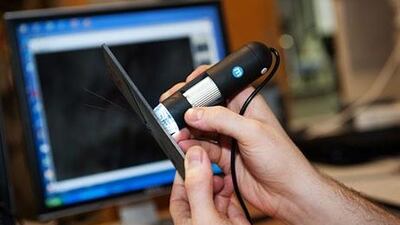In the span of a decade, Ireland has transformed itself from an unknown in the world of science into one of Europe's leading research centres.
Abu Dhabi Model Economies: More on the 2030 vision
Abu Dhabi eyes Irish lessons for its vision Ireland's economy has taken a beating during the financial crisis, but the country's development model is still one Abu Dhabi and other Gulf countries are looking at carefully. read article
A textbook example of how to make a financial hub work Ireland has made major investments in financial services, and has attracted some of the biggest banks in the world. Its success stands as perhaps a textbook example of how to develop a financial hub. read article
How to impress a client - have the PM speak on your behalf Ireland has put huge amounts of money and effort behind growing its small businesses. The government-led push has helped make thousands of homegrown companies successful and given them a lasting foothold in the global economy. Read article
The country ranked seventh among European peers in a 2008 survey on innovation at the company level. It was 19th in the world in quality of its published research, just behind Italy and Australia, according to a Thomson Reuters InCites report. And Ireland now punches well above its weight in the quantity of research from its universities and science centres, producing more papers per capita than the US and France.
Those achievements did not come without setbacks and obstacles. Nor did they come cheap - they required billions of euros in government spending, as well as a lot of hard work.
But Ireland's investment in science and innovation has already yielded the sort of rapid but careful progress that many developing jurisdictions, including Abu Dhabi, may want to emulate. It has created jobs, helped to develop the knowledge economy and attracted foreign investment.
Michael McCarthy, a professor of aeronautical engineering at the University of Limerick, has seen many of his students go on to careers designing aeroplane parts and materials, thanks in part to government investments in the programme and in a new material sciences centre built in 1998.
"A lot of our graduates work in Airbus," he says in the university's cavernous aeronautics lab, where students were busy making carbon-fibre materials and testing their strength."
Dr Stephen Simpson, the director of life sciences at Science Foundation Ireland (SFI), the centrepiece of the country's science funding strategy, says many of the basics were already in place when the government decided to raise Ireland's research profile a decade ago.
By the time SFI started in 2000, for example, Ireland had a top-notch university system. The idea was to tap the universities for talent while importing some big guns from abroad and hoping things would take off.
"They already had good research but in a landscape that was otherwise pretty - I don't want to call it barren - but it wasn't replete with lots and lots of science in the way that it is now," Dr Simpson says. "The idea was to get it kick-started."
SFI focused on technology and biology research as opposed to casting a wider net and coming up with fewer fish. It made clear to the academics it funded that it wanted to see practical results - products and processes that industry could use. And it brought considerable financial muscle. So far, overall spending on grants has reached €1.4 billion (Dh7.4bn).
Professor Michael Berndt, who heads one of SFI's first big projects, the Biomedical Diagnostics Institute (BDI) in Dublin, says the key to success is balancing academics' desire to do blue-sky research with the imperative of usable results.
"There's a very clear focus more and more on the translational aspects of the impact of research, which may not be in terms of economics but it could be a benefit to society."
* Asa Fitch

